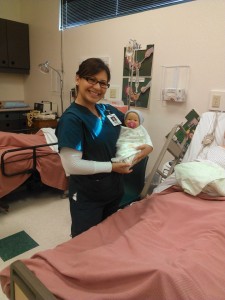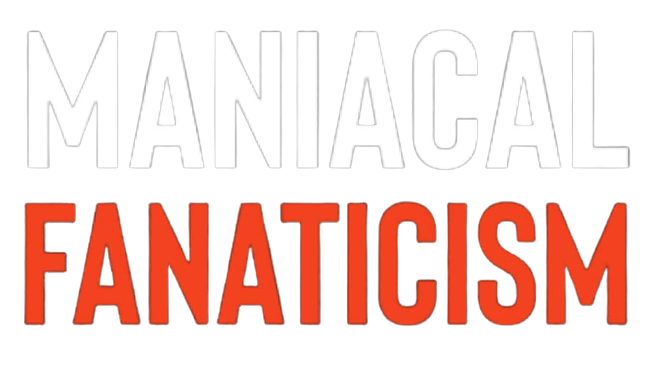She walked across the stage with a subtle limp. As she walked up and cradled her diploma, she looked toward the crowd for all those who had come to cheer her on. Her daughter looked at her with the comforting adoration that only a child can have for a parent. Her mom looked at her with the proud eyes that only a parent can have for their child. It isn’t always clear why happy moments like these force everybody to tears. These tears of joy acknowledge all the years of hard work and suffering.
For the family of Carylann Hernandez, the tears were flowing for a few other reasons. In August of 1993, Carylann noticed a painful bump on her leg. She had fallen from a tree a few months earlier and it appeared to be a pesky fracture that wouldn’t heal. Xrays were inconclusive, but a CT scan showed what the family had secretly feared. It was cancer. What Carylann remembers most is the tears. She couldn’t comprehend exactly what was happening. She cried, because her family was crying. Carylann didn’t get cake on her 10th birthday. Her 10th birthday present was chemotherapy. Three months of chemotherapy didn’t improve things. Doctors then explained that the only way to save her life was to amputate the leg. Carylann’s 5th grade challenge wasn’t algebra. Her greatest challenge that year was healing and learning to walk again. She would get chemo. Go home. Go back to the hospital with fever. Get blood transfusions and then get more chemo. This was her routine for an entire year.
She spent most of her 6th grade avoiding everybody, because her hair hadn’t fully grown back and she was tired of people staring at her prosthetic leg. As the year progressed she was far more comfortable with her friends and nurses from the hospital, than the curious kids at her school. For that year, the nurses became her best friends. In the hospital, the nurses never looked at her funny. They never questioned her. They smiled with her. They prayed with her. They comforted her. They made her laugh. They held her hand. Most of all, they inspired her.
When she walked up to the stage and received her nursing degree, she knew that she wanted to be a pediatric oncology nurse. She wanted to be the one smiling, praying and comforting. She wanted to be the one making kids laugh and holding their hands. She wanted to be the nurse that inspired other 10 year olds to become future nurses. She wanted other children to feel the love that she received from the nurses that cared for her.
The tears that fell on that graduation day were more than tears of pride. Those tears were the kind of tears that a mother sheds, when she wishes she could take the disease from her child. Those tears were the kind of tears that fall, when you wish you could take your child’s pain and make it your own. Those tears were the tears that fall, as you remember the chemotherapy, the amputation and the moment you found the painful bump on your child’s leg. Those tears were the tears that fall, when you watch your child learn to walk for the second time. Those tears are the tears of hurt, sadness, anger, happiness, despair, pain and relief all rolled into one.
Carylann Hernandez could have felt sorry for herself. She could have decided to stay at home and cry herself to sleep at night. She could have decided that the world owed her, after putting her through that ordeal. She could have sat at home and hoped that one day the nightmare would end. But, that’s not what she did. She woke up every day, put on her prosthetic leg and went to class. She woke everyday with the hope of caring for others. She woke up every day without any doubt in her mind that she would accomplish her goal. She woke up every day and did what many people with two legs couldn’t.
When I first m et Carylann Hernandez I asked her. “Why are you limping? What did you do to your leg?” She looked at me with a smile and simply said. “You don’t know. I don’t have one.” She walked away as if nothing had happened. It was clear then that Carylann knew her disability wasn’t what made her different. She knew that it was her ability that made her different. What we can learn from Carylann is that success is more likely, if we simply focus on our ability instead of our disabilities. Success happens when we concentrate on what we can do, instead of sulking about what we can’t. Success is possible because of your circumstances, but it is also possible in spite of them.
et Carylann Hernandez I asked her. “Why are you limping? What did you do to your leg?” She looked at me with a smile and simply said. “You don’t know. I don’t have one.” She walked away as if nothing had happened. It was clear then that Carylann knew her disability wasn’t what made her different. She knew that it was her ability that made her different. What we can learn from Carylann is that success is more likely, if we simply focus on our ability instead of our disabilities. Success happens when we concentrate on what we can do, instead of sulking about what we can’t. Success is possible because of your circumstances, but it is also possible in spite of them.
Congratulations Carylann!!!
doc mu
